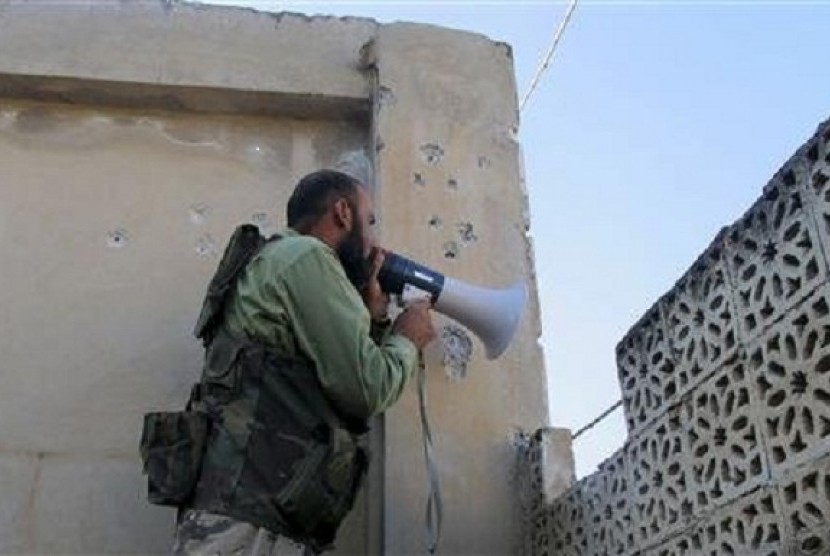REPUBLIKA.CO.ID, ISTANBUL - Syria's neighbors, wary of stirring a conflict that could spill back over their borders, would be reluctant partners in a US-led intervention but are ultimately likely to support limited military action if widespread use of chemical weapons is proven.
The White House disclosed US intelligence on Thursday that Syria had likely used chemical weapons, a move President Barack Obama had said could trigger unspecified consequences, widely interpreted to include possible US military action.
Syrian neighbors Jordan and Turkey, their support key in any such intervention, have long been vocal critics of Bashar al-Assad. Prime Minister Tayyip Erdogan, an erstwhile ally of the Syrian President, was among the first to call openly for his overthrow while allowing armed opponents to use Turkish soil.
But their rhetoric has been tempered by the changing circumstances of a war that has dragged on beyond their expectations and grown increasingly sectarian, as well as by the suspicion they will be left bearing the consequences of any action orchestrated by Western powers thousands of miles away.
For Turkey's leaders, facing elections next year, talk of chemical weapons is an uncomfortable reminder of the wave of anti-US sentiment which followed the 2003 US-led invasion of Iraq, justified by intelligence on nuclear, chemical and biological weapons that turned out to be erroneous.
Turkey, which shares a 900-km border with Syria, has reacted cautiously to the US disclosure while Jordan, fearful of the growing influence of radical Islamists in the Syrian rebel ranks, has voiced its preference for a political solution.
Turkey's relations with Washington have at times been prickly - notably in 2003 when it failed to allow the deployment of US forces to Turkey to open a northern front in the Iraq war - but strategic cooperation has generally remained strong.
Turkish support and bases proved vital, for example, to US forces in Afghanistan, while Turkey hosts a US-operated NATO radar system to protect against any regional threat from Iran.
"Given the texture of the current government's relations with the US and given the history of its discourse on Syria, I think it would be not impossible but rather difficult for Mr Erdogan not to oblige US demands," said Faruk Logoglu, former Turkish ambassador to Washington and vice chairman of the main opposition Republican People's Party.


